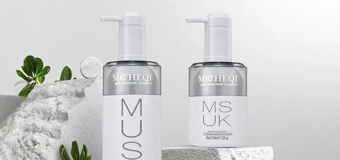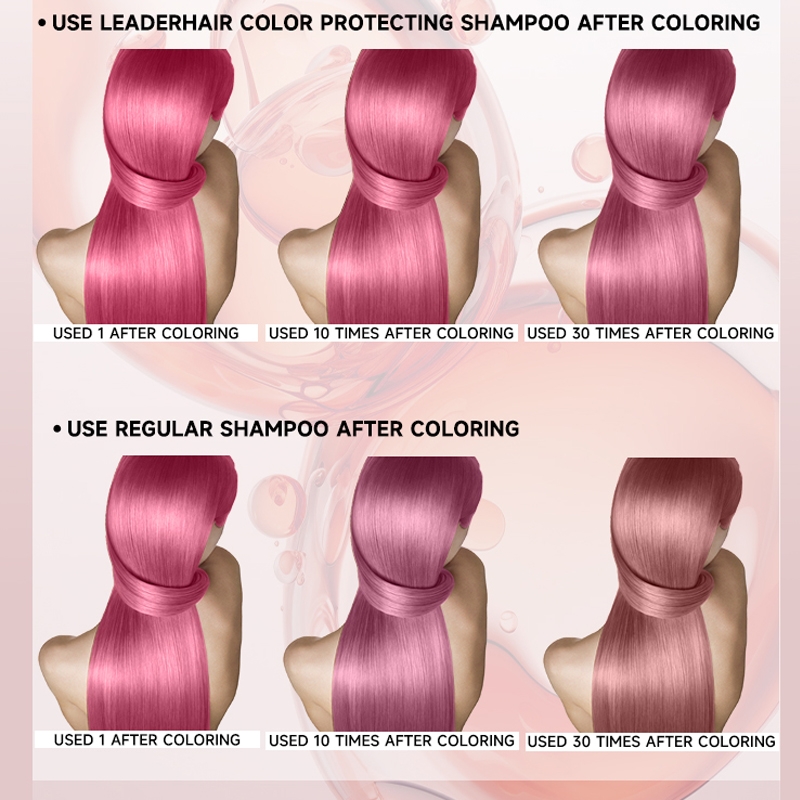Views: 4 Author: Site Editor Publish Time: 2025-11-03 Origin: Site

The hair care industry is evolving rapidly. New innovations are transforming hair shampoo formulas and technology. With rising demand for eco-friendly and effective products, brands are combining science and sustainability. In this article, we will explore the latest advancements in hair shampoo, focusing on eco-friendly ingredients, personalized scalp care, and innovative formulas. Discover how these innovations are changing hair care for the better.

Waterless shampoos are revolutionizing the way we think about hair care. Traditional shampoos are primarily made up of water, but waterless shampoos eliminate up to 80% of the water content, offering a concentrated and more effective formula. By using less water, these shampoos help reduce the carbon footprint associated with transportation and packaging, making them an eco-friendly alternative. Not only do they preserve water resources, but their concentrated form also results in longer-lasting products that are more convenient for on-the-go consumers.
| Benefit | Explanation |
|---|---|
| Reduced Carbon Footprint | Less water usage leads to smaller packaging, less transportation impact. |
| Eco-Friendly | No water waste, contributing to water conservation. |
| Convenience | Compact and easy to use, ideal for travelers and busy consumers. |
Waterless shampoos rely on advanced delivery systems such as powders, gels, and bars to deliver hair-cleansing benefits. These formats ensure a more sustainable product with minimal waste. Additionally, they help reduce the energy costs associated with production, transportation, and disposal. Waterless shampoos represent an important shift toward reducing environmental impact while providing high-quality hair care. Their compact size and packaging are easier to transport, resulting in lower emissions compared to traditional liquid shampoos.
Several brands are leading the way with waterless shampoo technology, including Ethique and Lush, which have been lauded for their eco-friendly practices. These brands focus on using biodegradable ingredients and recyclable packaging, making them popular among environmentally-conscious consumers. As consumer demand for waterless and eco-friendly options grows, more companies are expected to adopt this technology to stay competitive.
The search for more sustainable hair care solutions has led to the development of biodegradable surfactants. Ingredients like Sodium Cocoyl Isethionate, Decyl Glucoside, and Coco Glucoside are now popular alternatives to traditional chemical cleansers. These natural surfactants are derived from renewable sources like coconut oil and sugar, and they break down easily in water systems, making them less harmful to aquatic ecosystems. Not only do these ingredients clean effectively, but they also align with the industry's push toward more sustainable and eco-conscious products.
| Natural Surfactant | Source | Benefits |
|---|---|---|
| Sodium Cocoyl Isethionate | Coconut oil | Gentle on skin, biodegradable, effective. |
| Decyl Glucoside | Sugar | Mild, safe for sensitive skin, biodegradable. |
| Coco Glucoside | Coconut & sugar | Non-toxic, moisturizing, eco-friendly. |
With increasing consumer awareness about the environmental impact of beauty products, companies are sourcing more eco-friendly ingredients. Plant-based cleansers and surfactants not only reduce the reliance on petrochemicals but also ensure that shampoos are safe for the environment. For example, Decyl Glucoside, a sugar-based surfactant, is highly effective yet gentle on both the scalp and the planet. The use of sustainable ingredients that biodegrade naturally aligns with the increasing demand for green beauty products.
Consumers are increasingly demanding products made with natural, sustainable ingredients. This shift is driven by growing environmental awareness and the desire for cleaner, safer beauty products. A recent survey found that 70% of consumers prefer brands that use eco-friendly ingredients and packaging. As more companies integrate these sustainable practices into their formulations, green beauty products, including eco-conscious shampoos, are gaining a competitive edge in the market.
AI technology has significantly advanced scalp care, enabling products that cater to individual needs more precisely. Scalp analysis tools powered by AI use high-resolution cameras to capture images of the scalp, magnifying details that are invisible to the naked eye. These tools can assess scalp conditions such as dryness, oil production, dandruff, and even hair follicle density. By providing personalized insights, AI allows consumers to receive customized hair care recommendations based on their unique scalp health.
The microbiome of the scalp plays a vital role in hair health, and many shampoos now feature microbiome-friendly formulations. These shampoos support the scalp’s natural ecosystem, promoting a healthy balance of beneficial bacteria while preventing harmful pathogens from thriving. Formulas designed to balance the scalp microbiome help maintain the scalp’s pH level, improve hydration, and reduce inflammation, leading to healthier hair growth and scalp health.
In addition to personalized shampoos, targeted scalp serums are becoming increasingly popular. These serums are designed to address specific scalp conditions, such as oil production, dandruff, and hydration levels. They come with specialized applicators to deliver the right amount of product to the troubled areas. Clinical studies show that these treatments can significantly improve scalp health, reducing irritation and restoring balance.
Tip: B2B companies can invest in AI-powered scalp diagnostic tools and offer personalized scalp treatments, catering to consumers seeking highly customized hair care solutions.
The beauty industry is making strides in reducing plastic waste through refillable packaging systems. Refillable shampoo containers reduce the need for single-use plastic bottles, cutting down on plastic waste by as much as 80-85%. These containers come with easy-to-use refill mechanisms that allow consumers to reuse the original packaging multiple times, minimizing material waste and carbon emissions associated with production and transportation.
Brands are increasingly turning to recyclable and biodegradable materials for their packaging. For example, aluminum and glass are now popular choices, as they are infinitely recyclable and have minimal degradation in quality. Upcycled materials, such as those derived from sugar production waste, are also being used to create sturdy and eco-friendly packaging. These innovations not only help reduce the environmental footprint but also appeal to eco-conscious consumers.
Sustainable packaging benefits both the environment and the consumer. It helps reduce the carbon footprint and plastic waste, while also offering practical, cost-effective solutions for the beauty industry. As more consumers prioritize eco-friendly packaging, companies adopting sustainable solutions can gain a competitive edge and strengthen their brand reputation.
Tip: For B2B brands, offering refillable shampoo products with eco-friendly packaging can attract eco-conscious businesses and consumers seeking sustainable alternatives.
Plant-based proteins such as hydrolyzed wheat and soy proteins are making waves in hair restoration products. These proteins penetrate the hair shaft more effectively than animal-based proteins, delivering sustained hydration, improving elasticity, and strengthening hair. As consumers become more conscious of animal welfare and environmental sustainability, plant-based proteins are emerging as a key ingredient in eco-friendly hair care formulations.
Fermentation is transforming how active ingredients interact with hair and the scalp. Fermented ingredients increase the bioavailability of nutrients, allowing them to absorb more effectively into the hair follicles. These ingredients help improve moisture retention, enhance antioxidant properties, and balance the scalp’s microbiome. The rise of fermented ingredients like hyaluronic acid and specialized peptides marks a significant advancement in hair care technology.
Looking forward, the future of hair care lies in bio-sourced and biodegradable ingredients. As more brands focus on sustainability, bio-sourced ingredients, which are derived from natural and renewable resources, are expected to dominate the market. By 2030, it is projected that 95% of beauty ingredients will come from bio-sources or abundant minerals, ensuring that hair care solutions are both effective and environmentally friendly.
The future of hair care is becoming increasingly sustainable and advanced. Innovations like waterless shampoos, biodegradable ingredients, and AI-powered scalp care tools are reshaping the industry. These technologies not only improve hair health but also contribute to environmental responsibility. Companies like KAIJOE are leading the way with products that prioritize eco-friendly solutions and offer personalized beauty care, aligning with the growing demand for sustainable and effective products.
A: Waterless hair shampoo eliminates up to 80% of water content, offering a more concentrated and eco-friendly formula. It cleans effectively while reducing packaging waste.
A: Biodegradable ingredients like natural surfactants break down easily in water systems, minimizing environmental impact and supporting sustainable hair care solutions.
A: AI-powered tools analyze scalp health, offering personalized shampoo recommendations based on conditions like dryness and oil production for better results.
A: Plant-based ingredients like hydrolyzed wheat proteins hydrate and strengthen hair, offering a sustainable and cruelty-free option for healthier hair care.
A: Refillable shampoo packaging helps reduce plastic waste and carbon emissions, making it an eco-friendly and cost-effective alternative for sustainable beauty.